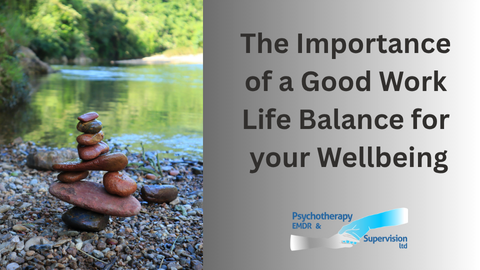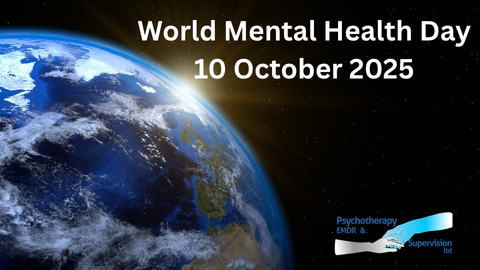
The Importance of a Good Work Life Balance for your Wellbeing – Many clients who come to therapy are overwhelmed, exhausted and questioning whether they can keep going. They may feel anxious, depressed and be experiencing burnout.
Often at the root of this distress is a lack of work life balance. Maintaining a good work life balance should not be seen as a luxury, but rather essential for your mental health. There is a toll, emotionally and psychologically to always being available to work in this digital age that encourages instant and immediate responses. A good work life balance means finding a way to live that supports both your professional life and productivity and your well-being.
When we work nonstop or live under constant pressure to perform, our bodies remain in a state of heightened alert. Over time, this chronic stress can lead to sleep issues, fatigue, and physical health problems. Giving yourself time to disconnect from work allows your nervous system to shift into a more relaxed state, promoting recovery and emotional regulation.
It is also important for us to have an identity outside of work. Often people find it hard to know who they are when they are not relating it to their job. We live in a culture that equates our value to our productivity. We are all more than our jobs, and it is important for us to reclaim hobbies and relationships that help us rest and discover who we are beyond our employment.
Three ways to have a better work-life balance
1. Set Clear Work Boundaries—And Stick to Them
Without boundaries, work tends to bleed into personal time, leading to burnout and resentment.
How to start:
- Set specific start and end times for your workday.
- Turn off email or work notifications after hours.
- Communicate your availability clearly to coworkers or clients.
Boundaries are not walls—they’re guidelines that protect your time, energy, and well-being. You’re not being difficult; you’re being sustainable.
2. Schedule Time for Rest and Joy—Not Just Tasks
We often schedule meetings and deadlines, but forget to plan for rest, hobbies, or connection—things that replenish us.
How to start:
- Add non-work activities to your calendar (exercise, reading, family dinners).
- Treat them with the same importance as work commitments.
- Start small: even 15 minutes of something enjoyable can shift your mental state.
Joy and rest are not “rewards” you earn after being productive—they’re essential parts of a healthy life.
3. Talk About It—With Your Support System at Work or with a Therapist
Work-life balance isn’t just an individual issue—it’s cultural. Talking about your needs can help shift expectations in your workplace or home.
How to start:
- Advocate for manageable workloads.
- Share your boundaries or struggles with trusted colleagues or friends.
- If you’re a leader, model balance for your team.
You don’t have to do this alone. Opening up can lead to more support—and often inspires others to make changes, too.
More About Paul Carter
If you feel like therapy could help you navigate your work-life balance or any difficult emotions or experiences, Paul offers:
- Psychotherapy and Counselling
- EMDR (Eye Movement Desensitization and Reprocessing)
- Clinical Supervision for Therapists
For more information about Paul’s background, therapeutic approach, and services, visit the:
If you feel that you would like to speak to someone about difficulties you are having, you might find speaking to a therapist helpful. Paul offers Psychotherapy and counselling, EMDR and Clinical Supervision. If you are struggling with any issue and would like to make an appointment with Paul please call Paul on 07843 813 537 or fill in the form on the Contact Page, if he doesn’t answer he is probably in a session, please leave him a message and he will call you back as soon as he can. For more information about Paul please take a look at the About Paul Page, Frequently Asked Questions Page and The Counselling Services Page.
Other Interesting Reads




